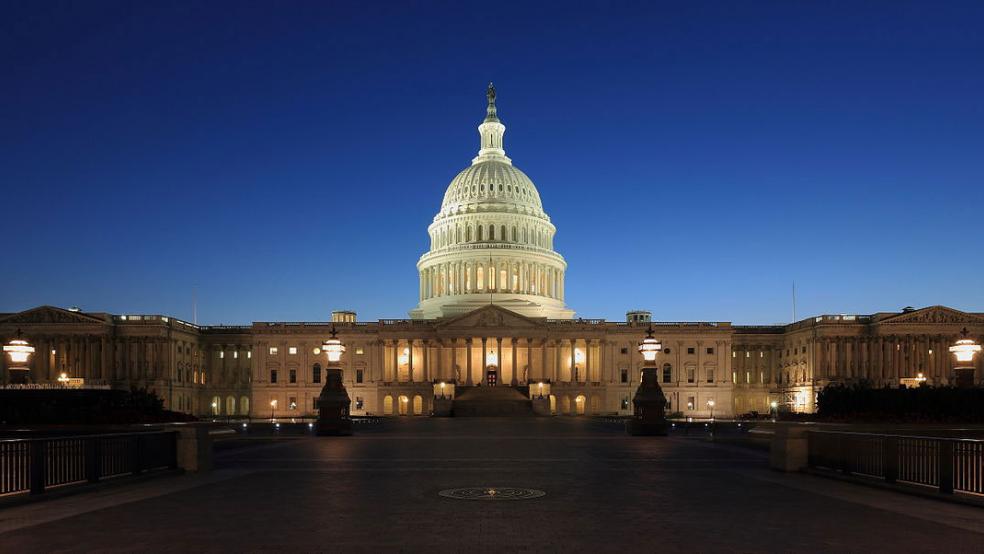A lot can change over the next three months, but right now Democrats look likely to win control of the House of Representatives. They currently hold the lead in both generic ballot polls and the prediction market for control of the House, but Republicans have the edge in the Senate, pointing to a divided government after November 6.
If Democrats win the House, legislative gridlock is the most likely outcome, says Andrew Hunter of Capital Economics.
Gridlock raises the odds of a government shutdown, Hunter writes, with funding for President Trump’s border wall and the need to raise the debt ceiling in March serving as potential flashpoints. Democrat-led investigations into Trump and his inner circle could compound the overall dysfunction, ensuring that very little gets done as far as legislation is concerned.
But what happens if Republicans manage to keep control of both the House and the Senate? Hunter doubts that Republicans can pass a second round of tax cuts, given the trillion-dollar annual deficits projected to start in 2020, driven in large part by the first set of cuts. Instead, Hunter expects a Republican-controlled Congress to turn to cutting federal spending, though without 60 seats in the Senate, those efforts may not amount to much.
Bloomberg’s Jonathan Bernstein is skeptical about any efforts to cut spending, writing instead that it’s “likely that spending will increase, with the logical (or at least politically feasible) compromise between increased spending on Republican priorities and Democratic priorities always being: both.” Bernstein notes that this scenario has significant fiscal implications: “Yes, that means the most likely policy outcome of continued Republican government would be extremely large federal budget deficits.”
Obamacare is another likely target if Republicans hold the House, but Bernstein believes that repeal is unlikely. His logic is simple: Republicans couldn’t repeal the Affordable Care Act in the current Congress despite controlling all branches of government, so there’s no reason to think they can do so in the next one. Republicans have demonstrated that they don’t have a viable replacement plan, Bernstein says, and they may have concluded that attacking Obamacare is more valuable politically to them than actually voting to end it.
But New York’s Jonathan Chait thinks that Republicans might just give Obamacare repeal one more try if they remain in control of Congress. President Trump is still complaining about the Senate’s failure on a repeal vote last year, and a GOP victory in November could produce a House filled with more Trump loyalists, not less, as moderate Republicans in swing districts lose their seats to Democrats. Add that to the growing sense in the administration that Trump is immune from criticism from his base, no matter how harmful his actions may be to his supporters, and you have a recipe for another repeal attempt. “If Republicans can withstand the president calling Nazis ‘good people,’” Chait acidly writes, “why not take another crack at health care?”




